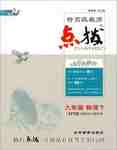题目内容
【题目】Our school newspaper is looking at an editor for its English edition. The job mainly consists two parts: One is to choose English articles for we students from other newspapers, magazines or the Internet. The other is pick out articles from those written by students in our school and edit them for use.
We hope what the person can meet the following requirements: First, he is willing to devote some of his or her spare time to serve others. Second, it’s necessary for him or her to be well at both English and fine arts. Beside, the ability to use the computer is important. Those who is interested in the job, please get in touch with the Students’ Union in this week.
【答案】1.looking at ---- for
2. consist of
3. we students—us
4. is 后加to
5. what--- that
6. serve--- serving
7. well---good
8. who is --- are
9. in this week 去掉in
10. beside-- besides
【解析】1. 考查介词。句意:我们学校的报社正在寻找一个英语编辑。固定短语:look for(寻找),故looking at ---- for。
2. 考查介词。固定短语:consist of(由……组成的),故consist后加 of。
3. 考查代词。作介词for的宾语,要用宾格形式,故 we students—us。
4. 考查不定式。要用不定式to pick out作表语,表动作,不能用动词原形,故is 后加to。
5. 考查连词。宾语从句中不缺少任何成份,所以用that连接,what是连接代词,要用主语或宾语,故what--- that。
6. 考查动词。固定短语:devote…to…(把……奉献给……)中to是介词,后边要接动名词,故serve--- serving。
7. 考查形容词。固定短语:be good at(擅长于……),故 well---good。
8. 考查动词。定语从句中关系代词who代替先行词Those(那些人)是复数意义,所以谓语动词也应该用复数形式,故 who is --- are。
9. 考查副词。句意:另外,使用计算机的能力也是很重要的。Beside(在……的旁边),而besides(另外),故 beside—besides。
10. 考查介词。由this/that+时间名词构成的时间状语前不用介词,故 in this week 去掉in。

 特高级教师点拨系列答案
特高级教师点拨系列答案【题目】A Language Programme for Teenagers
Welcome to Teenagers Abroad! We invite you to join us on an amazing journey of language learning.
Our Courses
Regardless of your choice of course, you’ll develop your language ability both quickly and effectively.
Our Standard Course guarantees a significant increase in your confidence in a foreign language, with focused teaching in all 4 skill areas----speaking, listening, reading and writing.
Our Intensive Course builds on our Standard Course, with 10 additional lessons per week, guaranteeing the fastest possible language learning (see table below).
Course Type | Days | Number of Lesson | Course Timetable |
Standard Course | Mon-Fri | 20 lessons | 9:00---12:30 |
Intensive Course | Mon-Fri | 20 lessons | 9:00---12:30 |
10 lessons | 13:00---14:30 |
Evaluation
Students are placed into classes according to their current language skills. The majority of them take on online language test before starting their programme. However, if this is not available, students sit the exam on the first Monday of their course.
Learning materials are provided to students throughout their course, and there will never be more than 15 participants in each class.
Arrivals and Transfer
Our programme offers the full package—students are take good care of from the start through to the very end. They are collected from the airport upon arrival and brought to their accommodation in comfort. We require the student’s full details at least 4 weeks in advance.
Meals/Allergies(过敏)/Special Dietary Requirements
Students are provided with breakfast, dinner and either a cooked or packed lunch(which consists of a sandwich, a drink and a dessert). Snacks outside of mealtimes may be purchased by the student individually.
We ask that you let us know of any allergies or dietary requirements as well as information about any medicines you take. Depending on the type of allergies and/ or dietary requirements, an extra charge may be made for providing special food.
【1】How does Intensive Course differ from Standard Course?
A. It is less effective. B. It focuses on speaking.
C. It includes extra lessons. D. It give you confidence
【2】When can a student attend Standard Course?
A. 13:00-14:30 Monday. B. 9:00-12:30 Tuesday
C. 13:00-14:30 Friday. D. 9:00-12:30 Saturday.
【3】Before starting their programme, students are expected to _____.
A. take a language test
B. have an online interview
C. prepare learning materials
D. report their language levels
【4】With the full package, the programme organizer is supposed to_____.
A. inform students of their full flight details
B. look after students throughout the programme
C. offer students free sightseeing trips
D. collect students’ luggage in advance
【5】Which of the following may require an extra payment?
A. Cooked dinner. B. Mealtime dessert.
C. Packed lunch. D. Special diet.
【题目】—Only those who have a lot in common can get along well.
—_________. Opposites sometimes do attract.
A.I hope not | B.I think so |
C.I appreciate that | D.I beg to differ |